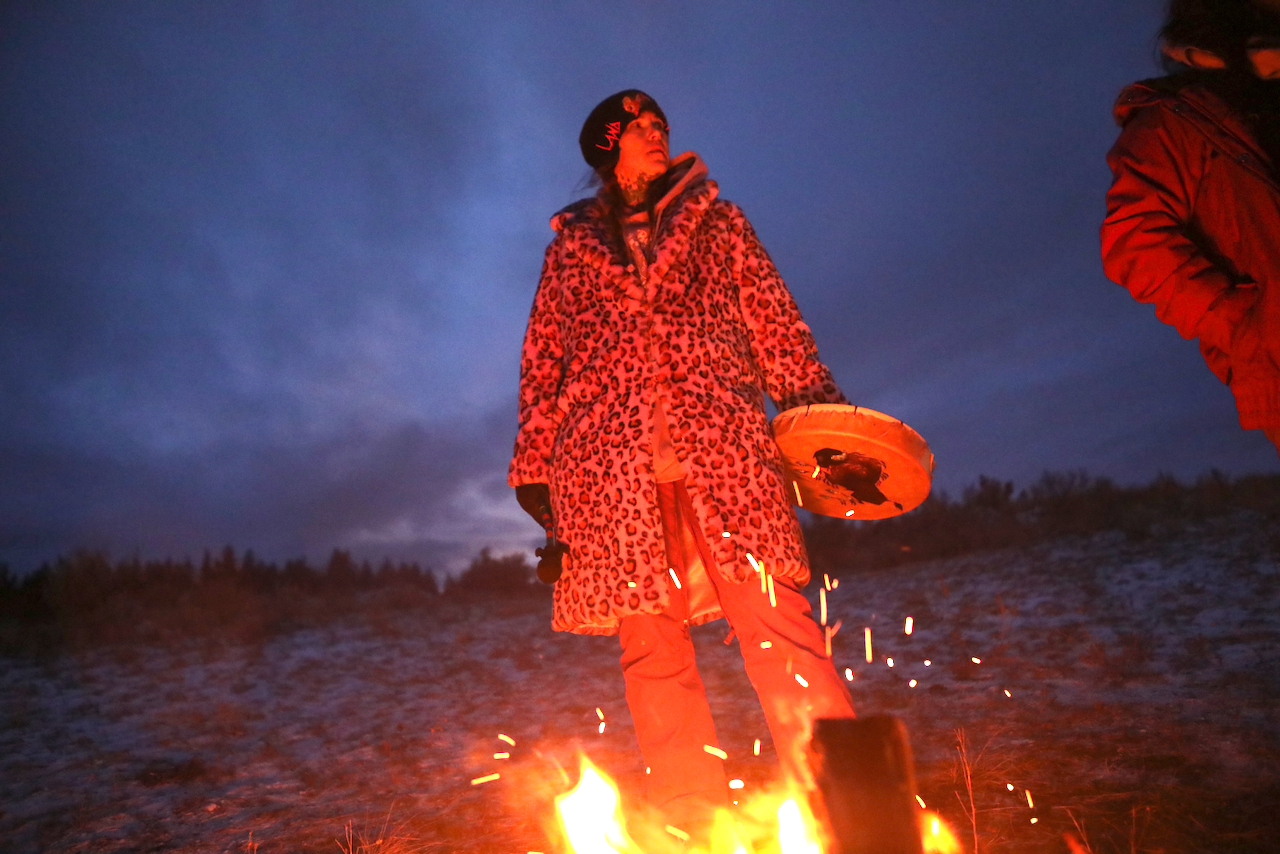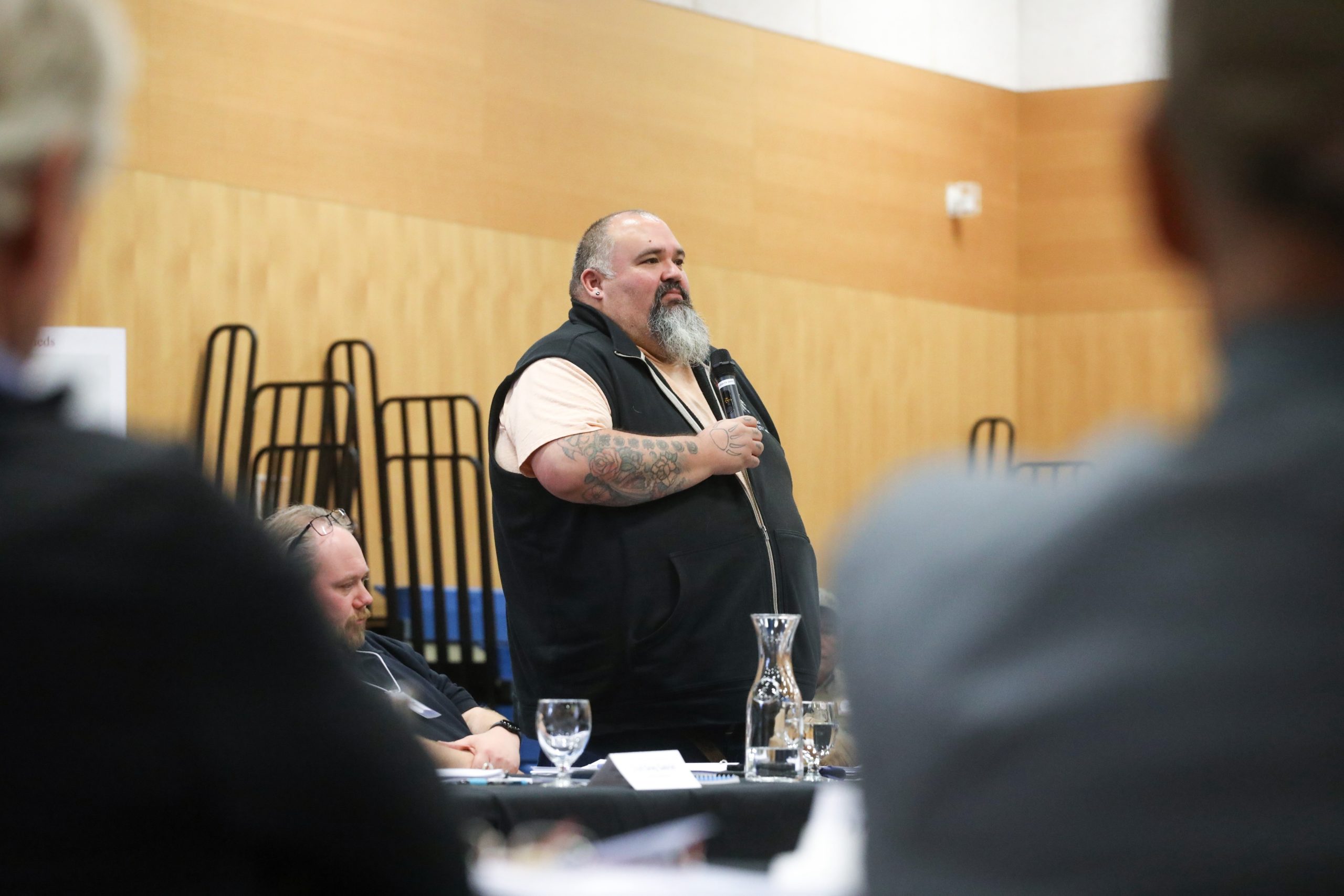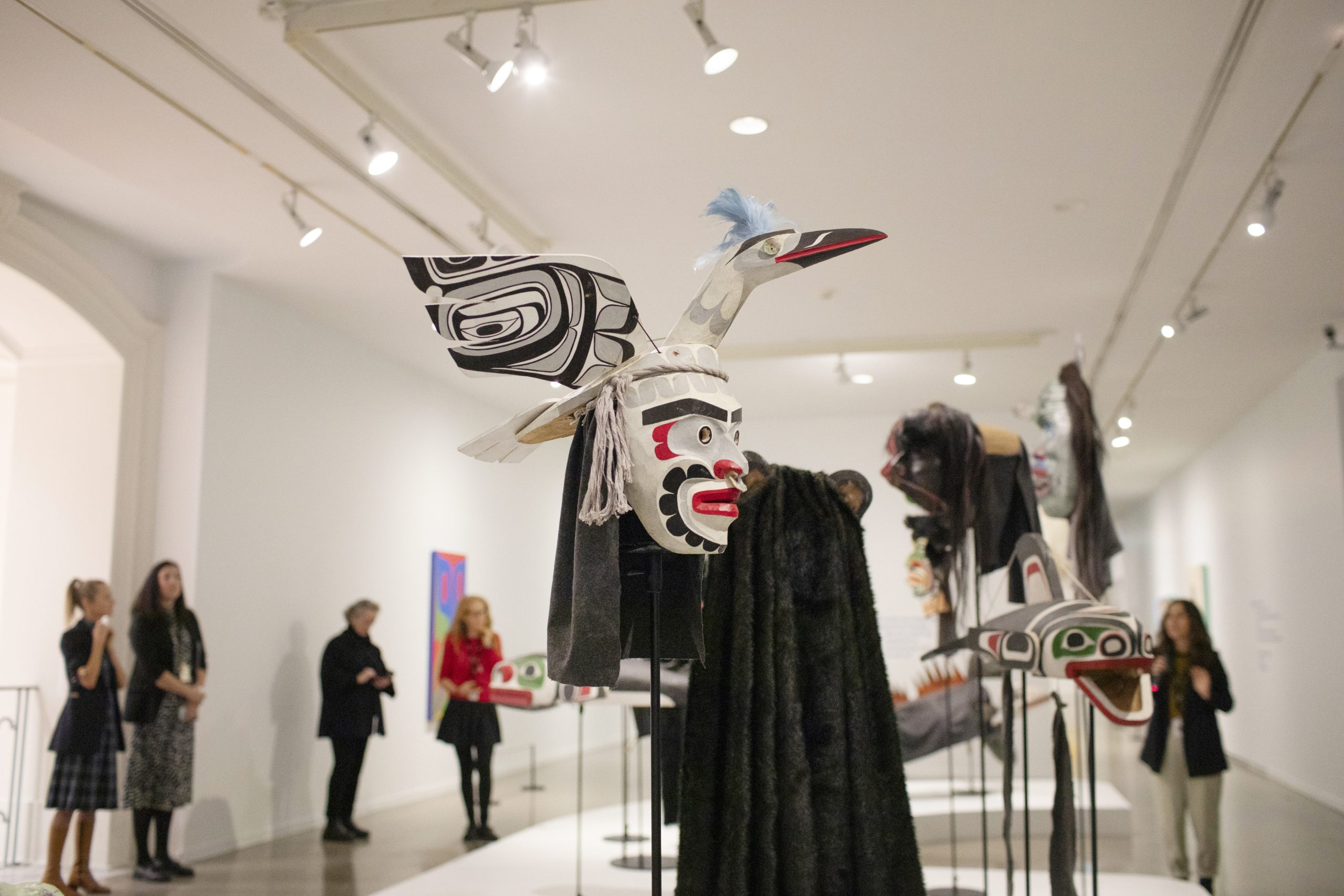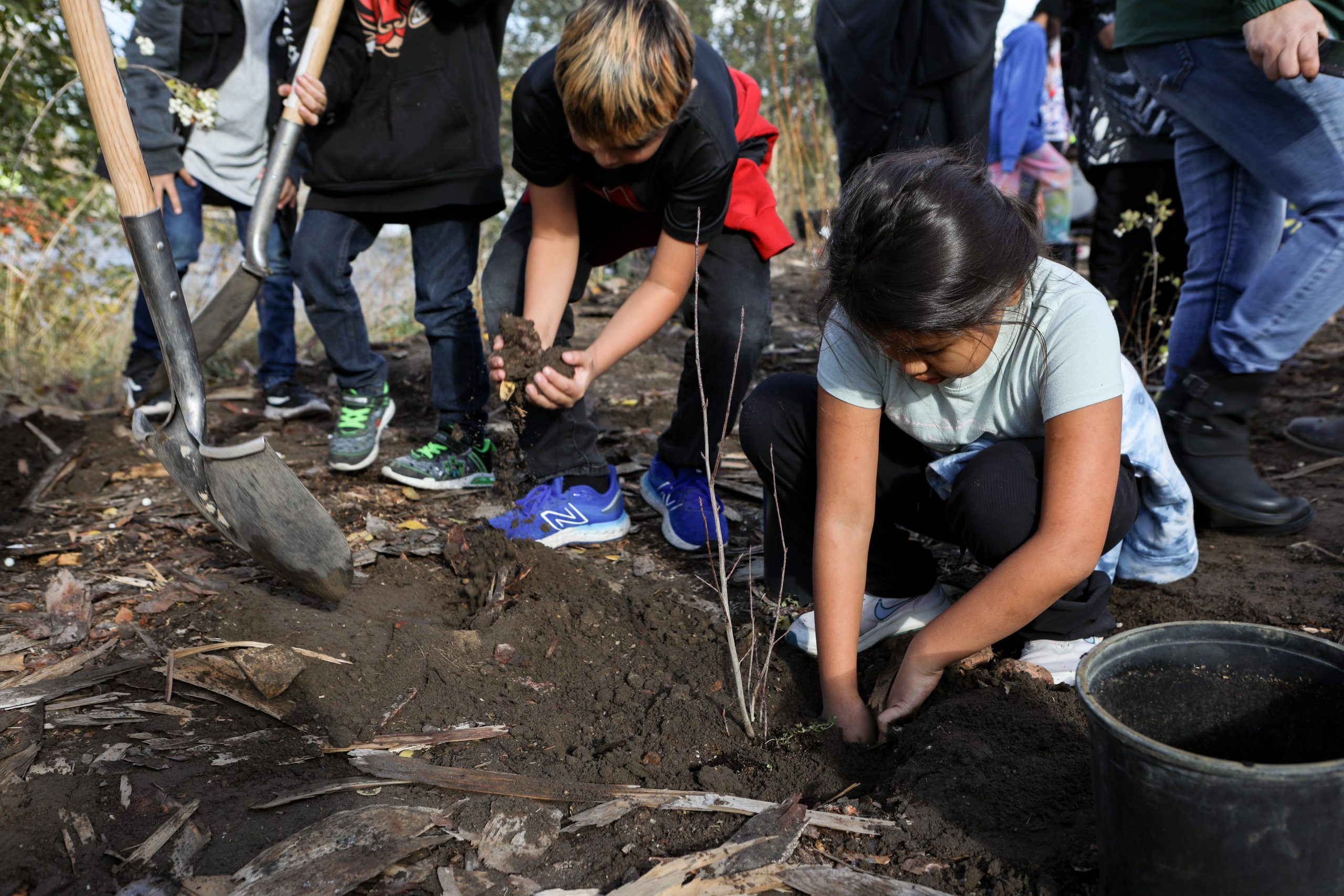Called a ‘transformative opportunity’ for change, ‘Vancouver’ will vote on UNDRIP strategy
The 32-page report endorsed by xʷməθkʷəy̓əm, Sḵwx̱wú7mesh and səlilwətaɬ will be subject to city’s vote on Oct. 25


A comprehensive report centred around implementing the United Nations Declaration on the Rights of Indigenous People (UNDRIP) in “Vancouver” has now been delivered to city council.
xʷməθkʷəy̓əm, Sḵwx̱wú7mesh and səlilwətaɬ leadership has approved and endorsed the UNDRIP strategy, which the city will vote on whether to adopt next week.
During an event at the Museum of Vancouver on the site of Sḵwx̱wú7mesh’s Sen̓áḵw village Wednesday, members of the three host nations presented a 32-page document that was developed by an UNDRIP Task Force and includes recommendations to implement the legislation.
“Vancouver is now the first city in the world to work government-to-government to develop a strategy to implement UNDRIP,” said Khelsilem of Sḵwx̱wú7mesh Nation, the UNDRIP Task Force co-chair.
“It came about because of genuine mutual respect by all the parties involved, and a genuine desire to create a meaningful pathway to reconciliation.”
The report includes 79 recommendations under four themes that use UNDRIP and the provincial Declaration Act as a framework.
The report will be up for consideration by city council on Oct. 25 and is expected to be unanimously accepted, according to the other task force co-chair and “Vancouver” Councillor Christine Boyle. The city’s new mayor and council won’t take office until Nov. 7.
“Implementing UNDRIP on every level, including the city level, is an important act of redress and reconciliation,” she said. “It’s a transformative opportunity for all of us together to fix broken systems and build stronger relationships with one another, the land and the water.”
UNDRIP was adopted by the UN general assembly in 2007 (which “Canada” initially voted against) and provides a “universal framework of minimum standards for the survival, dignity and well-being of the Indigenous people of the world.”
“B.C.” formally adopted UNDRIP through the Declaration Act in 2019, and on National Indigenous Peoples Day in 2021 UNDRIP received royal assent in “Canada”. If the strategy is approved by the “Vancouver” council it will be the first co-developed, multi-government framework to implement UNDRIP at the city level.
The Truth and Reconciliation Commission and its Calls to Action, as well as the National Inquiry into Missing and Murdered Indigenous Women and Girls Final Report, both call for the implementation of UNDRIP.

In a statement, BC Assembly of First Nations (BCAFN) Regional Chief Terry Teegee pointed out that the City of Vancouver committed to being a “city of reconciliation” back in 2014.
“Following through on the expert recommendations outlined in the task force’s final report is integral to fulfilling that commitment,” he said.
The task force included representatives and experts in governmental policy-making from all four governments. The four themes outlined in the report are: social, cultural, economic well-being; ending Indigenous-specific racism and discrimination; self-determination and the inherent right of self-government; and rights and title of Indigenous people.
The themes address issues that include environmental racism, housing, policing, revenue-sharing with host nations, repatriation of lands to the nations, shared decision-making that goes beyond checking a box, and the involvement of the urban Indigenous population in “Vancouver” — the second largest in the country, after “Winnipeg.”
“Reconciliation isn’t just important because something wrong happened in the past and we need to do something to atone for those wrongs, it’s also about working together,” said Khelsilem.
“Whether it’s on economic development, culture, or fighting discrimination, we all win from our nations and governments working together.”
Author
Latest Stories
-
‘Bring her home’: How Buffalo Woman was identified as Ashlee Shingoose
The Anishininew mother as been missing since 2022 — now, her family is one step closer to bringing her home as the Province of Manitoba vows to search for her
-
Will you help us tend to the fire?
IndigiNews is launching a fundraising campaign to support our storytelling into 2026












